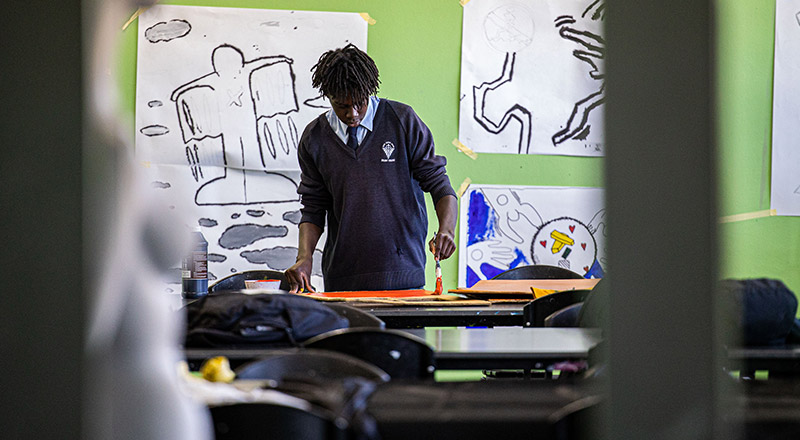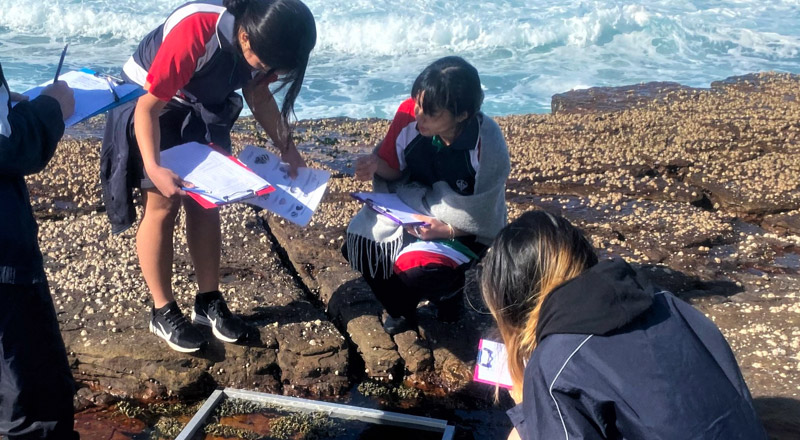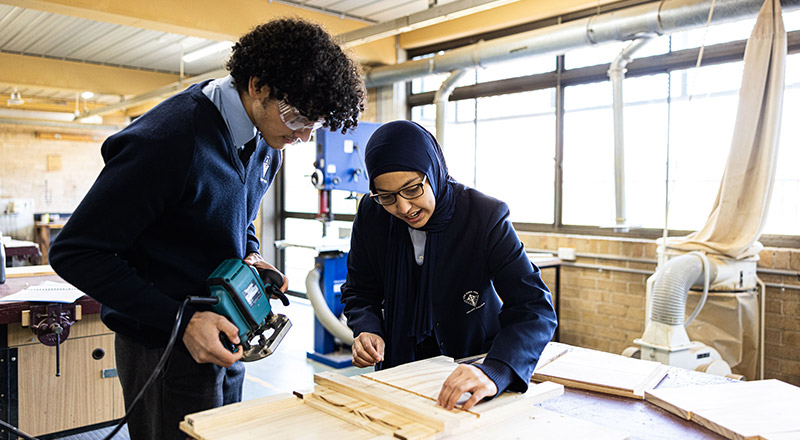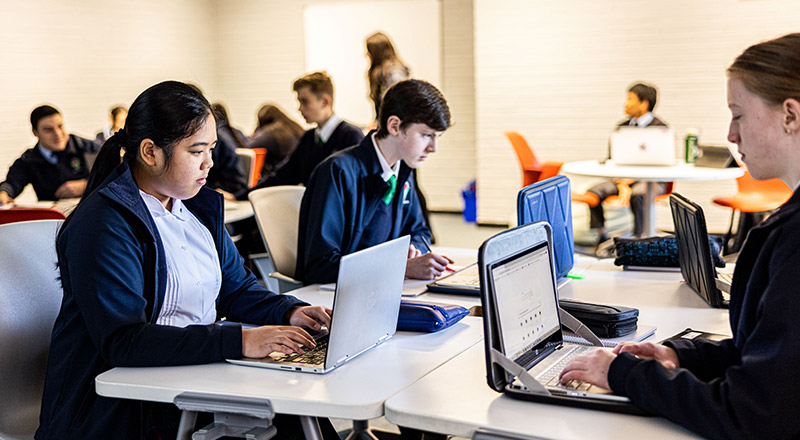Pathways for success
The learning journey at Delany College honours the developmental stages in a student’s life.
Each of our ‘Pathways for Success’ is broken down into a specific learning and wellbeing framework for each stage of learning. With this approach we aim to transform the lives of our young people so that they can become successful in their adult lives and be dynamic community leaders.
Pathways for success

Delany empowers Stage 5 students to become self-directed learners
Using the skills they have developed in early high school, students in Years 9 and 10 begin to take control of their learning, and we provide guidance and support as they begin to explore options for their future, and choose elective subjects.
Students who have achieved success in their core subjects in the previous year, have the chance to be part of a specialised, learning enrichment program.

Inquiry Pathway
| Learning framework | Wellbeing framework |
| Core classes, with the opportunity to participate in a learning enrichment program | Positive Behaviour for Learning - this college-wide framework encourages our students to be safe, respectful learners and celebrates positive behaviours |
| Personalised Learning Plans - for students who require additional support | Empower Me - a program to help students develop self-directed learning skills and take responsibility for their learning |
| Elective courses - a wide range of subjects to choose from including vocational education courses allowing students to explore their interests and decide on a direction | Camp/Formation Day to strengthen faith formation and deepen understanding of what it means to be Catholic in today’s world, and build appreciation for each other |
| Work Experience + Early Advancement - we help students identify possible future career pathways and interests through practical experience, may include partnership opportunities with TAFE and universities |
Students are connected to the real world and prepared for success as lifelong learners
Having grown and matured through the initial years of adolescence, students at these ages are beginning to settle down. In response to this, students engage in a personalised learning program that seeks genuine dialogue to challenge students to raise their own questions, create their own ideas, seek solutions to real world challenges and explore their interests and passions.
Project Based learning (PBL) engages students with real world problem-solving. Students develop deep content knowledge as well as critical thinking, creativity and communication skills. Every day, students are strengthening their academic mindset with the skills they need to take responsibility for their own learning journey.
Learners become creative critical thinkers through personalised and accelerated programs. Learners become connected and communicate through real-life experiences. Through this learning journey they soon discover how awesome they can be.
Discover the Delany learning pathways

Years 7 to 8
Foundations Pathway
Years 9 to 10
Inquiry Pathway
Years 11 to 12
Senior Pathways

